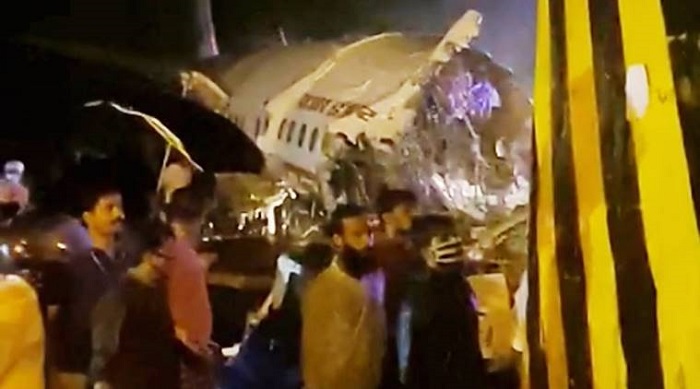Baku, Apr 5: Terrorism is one of the foremost threats to international peace and security as it maims and kills "our citizens", and undermines the ability to attain development goals, External Affairs Minister Sushma Swaraj said on Thursday.
Addressing the 18th mid-term ministerial meeting of the Non-Aligned Movement (NAM) here, Sushma also pushed for reforms of the United Nations Security Council.
She said that no effort to reform the UN will be complete without reforms of the United Nations Security Council.
India had been strongly pushing for completing the long-pending reforms of the powerful Security Council.
Sushma said that terrorism is one of the foremost threats to international peace and security.
"It maims and kills our citizens and undermines our ability to attain our development goals.
"Unfortunately, the talks about combating terrorism have not been matched by our actions. The strengthening and implementation, without double standards of existing international laws and mechanisms to fight the menace of terrorism is an imperative," the minister said.
The meeting was chaired by Jorge Arreaza, Foreign Minister of the Bolivarian Republic of Venezuela.
In 1996, India proposed a Comprehensive Convention on International Terrorism (CCIT) as a way to strengthen the existing legal framework. Yet after more than two decades, discussions have made little progress even while terrorists continue to operate with greater impunity and inhumanity, the minister said.
"As a first step, let us renew our commitment to finalise the CCIT. NAM countries must galvanise the international community towards this goal," Sushma said.
At the last UN General Assembly High Level segment, a strong desire was voiced by the international community for change and reforms at the United Nations, she said.
"To date, the Inter-Governmental Negotiation process, has been carefully nurtured into a credible collective process for negotiation on this important subject.
"The time has come to move to the next phase and commence text-based negotiations a demand made by an overwhelming majority of UN members including most NAM members," she said.
"India's support to the Palestinian cause has been a reference point of our foreign policy. At this juncture, this would be a good way for NAM to manifest its solidarity with the Palestinian people," Sushma said.
At the recent meeting in Rome to deal with the financial crisis faced by the United Nations Relief and Works Agency (UNRWA), India decided to increase its contribution to the UNRWA budget from $1 million to $ 5 million, on a multiple year basis, in view of the dire financial crisis that this body now faces.
"The challenges we face today such as nuclear escalation, armed conflict, refugee flows, terrorism, poverty and worsening environmental degradation all require more effective multilateralism. The fundamental values and principles on which the Non Aligned Movement is based are, therefore, even more relevant today.
"In 2015, we adopted the Sustainable Development Goals (SDGs) to find solutions of the developmental challenges we face. We also promised that no one will be left behind. Genuine global partnerships have to be forged if the SDGs are to be achieved. Financing for Development is, therefore, of utmost importance to NAM countries," Sushma said.
Protecting the environment of the planet is a moral responsibility. Global action on the basis of the principle of common but differentiated responsibilities and respective capabilities is now an even greater imperative, she said.
India along with France launched the International Solar Alliance through which more than 60 countries have joined to promote greater use of solar energy, she said.
"Finding energy sources that are cost-effective, environmentally sustainable will be vital for achieving our SDGs, while ensuring that we protect mother Earth for future generations," Sushma said.
NAM has been a votary of universal, non-discriminatory and verifiable nuclear disarmament and of pursuit of that goal through multilateralism.
India remains committed to the shared goal of the global elimination of nuclear weapons, Sushma added.






Comments
Modi & RSS Terrprists are the Threat to Indian peace.
Mr.Sushma you are correct, Please brief your opinion and knowledge about terroris.
1. What is th meaning of terrorism
2. To whom you will call a terrorist
3. What to call the groups, which always ignite communal clash and attacke one inncoents
Hope you will give a respectful explanation.
Add new comment